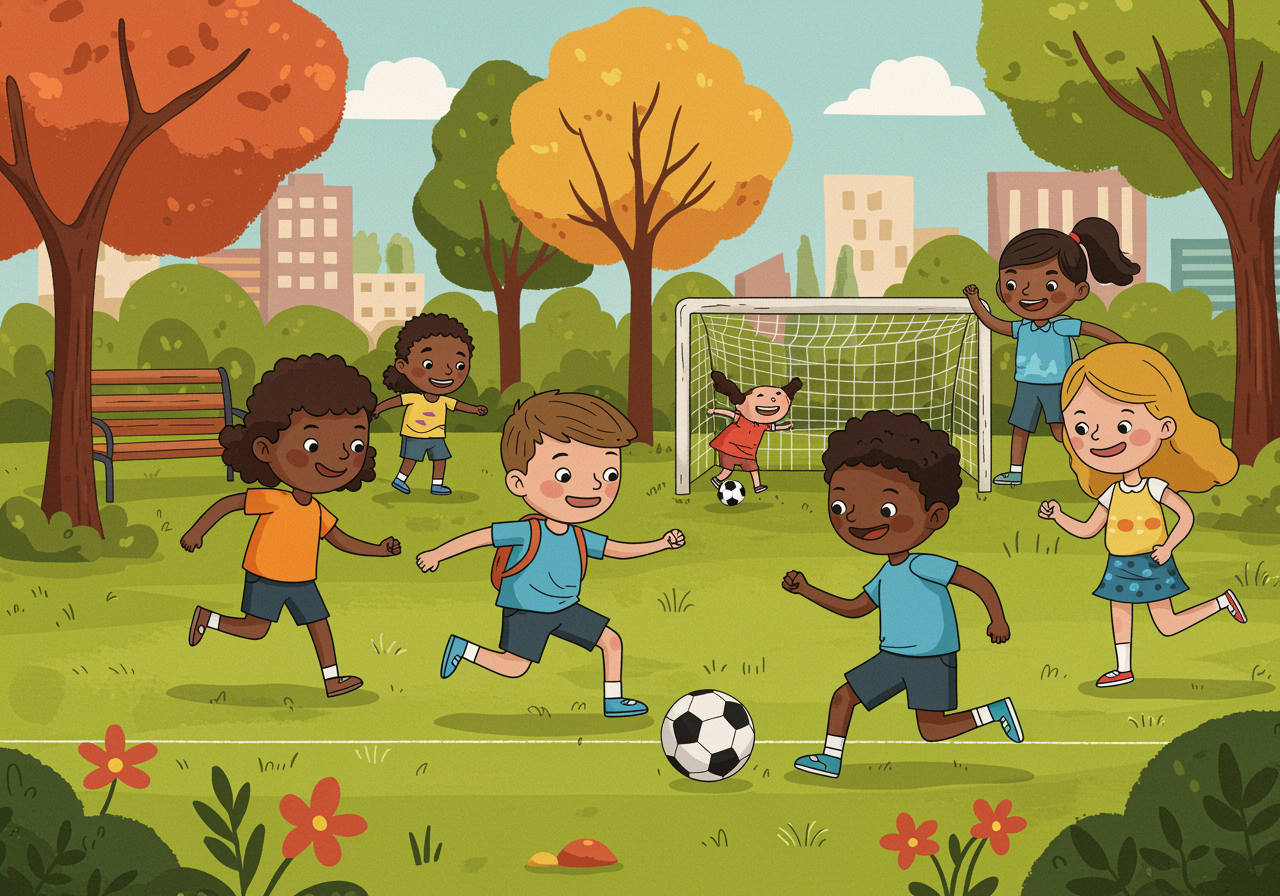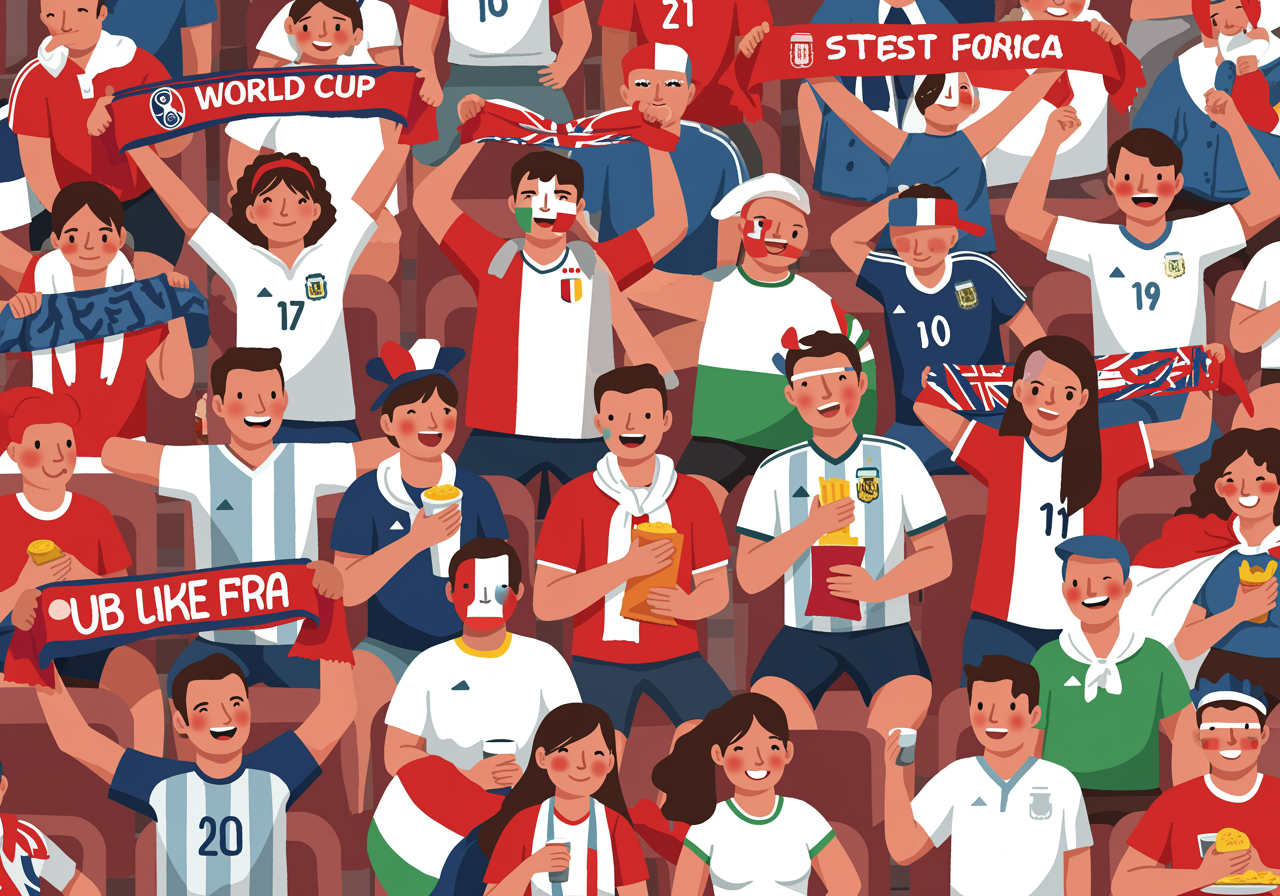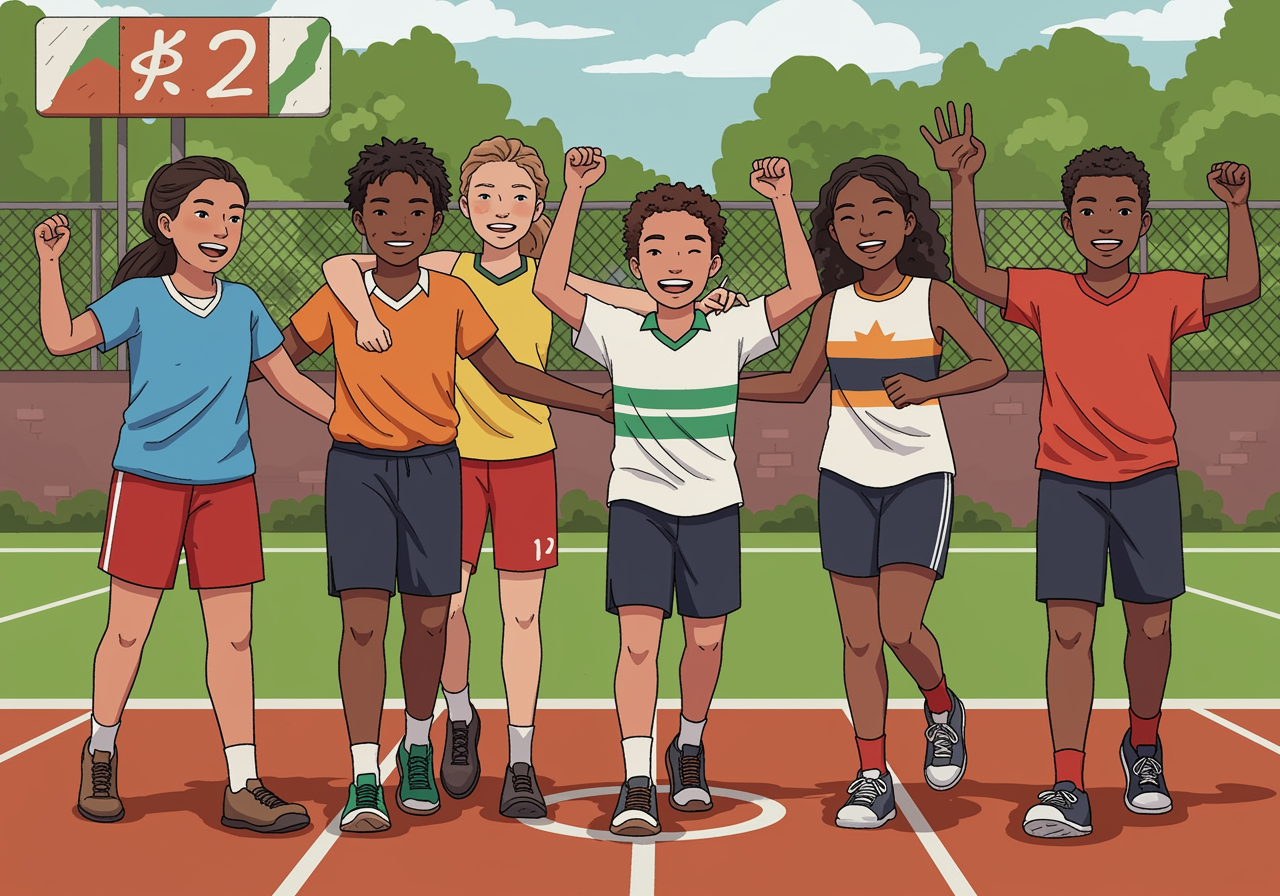Game Changers: How Sports Break Down Walls and Build Bridges
Discover the amazing power of sports to unite people from every corner of the world
Explore how a simple game can turn strangers into teammates and rivals into friends, no matter where they come from.
Overview
Think about it – when your favorite team scores, you're cheering alongside fans who might speak different languages, eat different foods, or come from different countries, but in that moment, you're all united by pure excitement! Sports have this incredible superpower to break down the invisible walls between people and create instant connections. Whether it's kids trading soccer tips at a local park or entire nations coming together during the Olympics, sports speak a universal language that everyone understands. This is why talking about sports and culture with your child opens up amazing conversations about friendship, respect, and what really brings people together.

Understand in 30 Seconds
Get up to speed quickly
- Sports Speak Every Language: A smile after a great play, a high-five, or helping someone up – these happen in every sport around the world. No translation needed!
- Teams Mix Everything Up: Look at any professional team and you'll see players from different countries, religions, and backgrounds working together toward one goal.
- Shared Struggles Create Bonds: When you train hard, lose together, and celebrate wins with teammates, those experiences create friendships that go way beyond the game.
- Rules Create Fairness: Sports have the same rules for everyone, creating a level playing field where your background doesn't matter – only your effort and sportsmanship do.
Real Life Scenario
Situations you can relate to
Imagine you're at a World Cup match between two countries that don't get along politically. But look around the stadium – fans from both sides are wearing their team colors, sure, but they're also sharing snacks, taking selfies together, and teaching each other team chants! After the game, win or lose, players exchange jerseys and hug it out. Why does this happen? Because sports create a bubble where the things that usually divide people – politics, language, money – suddenly don't matter as much as the shared love of the game. Have you ever made a friend while playing pickup basketball or joined a team where you didn't know anyone? That's the magic of sports working on a smaller scale!

Role Play
Spark a conversation with “what if” scenarios
What if you were coaching a youth soccer team with kids from five different countries?
- Role play: Practice being the coach! Pretend your child speaks different languages and create hand signals or demonstrations to teach a soccer drill. Discuss how you'd make everyone feel included.
What if you had to explain your favorite sport to someone who had never seen it before?
- Role play: Take turns teaching each other made-up sports rules without using words – only gestures and demonstrations. See how universal body language can be!
What if you were an Olympic athlete meeting competitors from countries you'd never heard of?
- Role play: Role-play the Olympic Village dining hall where athletes share meals. Practice introducing yourselves and finding common ground beyond your 'sports.'
FAQs
Frequently asked questions people want to know
Why do sports work better than other activities at bringing people together?
Sports combine physical activity, clear rules, and shared goals in a way that creates instant understanding. Plus, the emotions – excitement, disappointment, triumph – are felt the same way by everyone.
Don't people sometimes fight more because of sports rivalries?
True rivalries exist, but they're usually between fan groups, not the athletes themselves. Most players respect their opponents and understand that competition makes everyone better.
How can someone who's not athletic still benefit from sports bringing people together?
You don't have to play to participate! Coaching, refereeing, keeping score, cheering, or even just watching brings people into the sports community and its unifying power.
Examples in the Wild
See how this works day to day
- The 2022 FIFA World Cup featured teams from 32 countries, with players representing over 50 different nationalities across all teams combined (FIFA Official Statistics)
- During the 2021 Tokyo Olympics, athletes from 206 countries competed together, creating the world's most diverse gathering of young people (International Olympic Committee)
- NBA teams now feature players from over 40 different countries, making basketball truly global (NBA Global Development Report)
- The Special Olympics brings together athletes with intellectual disabilities from 190+ countries, proving sports unite people regardless of ability level (Special Olympics International)
In Summary
What you should know before you start
- Sports create instant connections through shared experiences, emotions, and goals that cross cultural boundaries
- Team environments naturally mix people from different backgrounds and teach them to work together
- Universal rules and fair play create equality that often doesn't exist in other parts of society
- The physical and emotional intensity of sports breaks down social barriers faster than almost any other activity
Pro-tip for Parents
You got this!
If your child seems hesitant to discuss cultural differences, start with sports examples they already know. Ask them about their favorite athletes' backgrounds or point out diversity on teams they follow. This makes the conversation feel natural rather than like a lesson. Also, don't worry if you're not a sports expert – your child might actually enjoy teaching you about their favorite teams while you explore the cultural aspects together!

Keep an Eye Out For
Find these examples in everyday life
- International sporting events like the World Cup, Olympics, or World Championships where you can point out cultural exchanges
- Local community sports leagues where kids from different schools or neighborhoods play together
- News stories about athletes using their platform to promote unity or cultural understanding
Explore Beyond
Look up these related research topics
- How music and art also bring cultures together
- The history of sports in different civilizations and what they reveal about values
- How language barriers are overcome in international competition